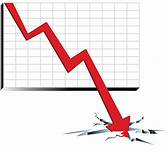As Earnings Recession Looms, Valuations to be Depressed

A diesel economy, nerve-shattering inflation, expectation of rising bond yields, and supply chain bottleneck will lead to corporate profit falling in the last two quarters of the year.
Analysts say the aforementioned volcano waiting to erupt will also result in a compression price earnings multiples.
The NGX 30 firms (the list of the most liquid and capitalized firms) have been recording strong profit growth since last year, thanks to hike in the price of key products that helped compensate for rising input costs and a rebound in crude oil price underpinned by the successful rollout of vaccines and reopening of the economy.
Of course, the stellar performance by bellwether firms is concomitant with a bullish equity market and the market recovery that ensued from May 31 2021 was largely driven by the hunt for positive real return in the face of ultra-low fixed income (FI) yields and improved fundamentals.
The uptrend in the local bourse performance reflected in market valuation as P/E remained robust in the first six months of the year (H1:2022) at 10.6x compared to 10.3x in the prior year, according to data from Afrinvest Securities.
At current levels, the market trades at price to earnings (P/E) multiples of 11.x, a discount to the 10 year average of 12.70x.
“This was driven by the continued fast-paced recovery in market earnings per share (up 31.9% y/y) relative to the gains in prices,” said analysts at Afrinvest Securities.
The NGXASI has gained 20.19 percent since the start of the year with the top ten performer of the year being: Multiverse, 800 percent YTD; MEYER, 447.83 percent, WEMA Bank, 372.22 percent; Academic Press, 350 percent; Guinness, 132.05 percent; 124.60 percent; NANCHO; Lafarge Africa, 113.68 percent; Seplat, 100.80 percent; Cadbury, 94.30 percent, and 86.64 percent.
However, the sharp rise in the price of diesel since the start of the year, exacerbated by the war between Russia and Ukraine which balloon crude oil price of a product that had been deregulated, is taking a severe toll on companies who operate in a country where power supply from the grid is increasingly inconsistent.
Of course, manufacturers have often raised the alarm over lack of access to forex, excessive taxation, high electricity tariff, and harsh operating environment, among others. At many filling stations in Lagos, the price of diesel ranges between N700 and N815 per litre.
Analysts at Cordros Securities in a recent report said the downside risk to valuation and company fundamentals are: sharp downturn on oil prices, pace of uptick in domestic FI yields, and weaker than expected from heavy weight companies such as Airtel Africa, MTN Nigeria, Dangote Cement, and Nestle.
Analysts say the second quarter earnings report that starts this week will give a clue on the upward movement of input costs and its impact on profit margins.
“You would see reduction in valuation multiples if earnings do not meet up market expectations. A spike in commodities that stoked diesel prices and combined with weak consumer spending will put pressure on bottom-line (profit),” said Gbolahun Ologunro, equity research analyst at Cordros Secutirries.
Ologunro added that the consumer goods sector will be the hardest hit because sector players are unable to easily pass through a significant bulk of the cost burden to consumers, unlike other industries, due to high competition and pressured consumer wallets.
“There is a strong reason for earnings reduction in the third and fourth quarters. And the question is for how long companies will continue to raise prices. Companies in the consumer goods sector will be harder hit by the high cost of production,” said Ologunro.
To curb the red-hot inflation stoked by Russia invasion of Ukraine and the ensuing sanction on the former by the United States and Europe, the central bank governor Godwin Emefiele hiked the monetary policy rate to 13 percent from 11.50 percent.
There are indications that the central bank governor would maintain a hawkish tone till the end of the year. Of course, a hike in interest and rising bond yields causes stock selloff as investors rotate to bonds and other safe haven assets as valuations are suppressed.
The Nigeria 10 year Government Bond has an 11.240 percent yield, according to data from Government Bonds Index.
The price to earnings multiples will decline as a result of reversal in the outlook of investors on the underlying company performance that will be negatively impacted by the unfavorable macroeconomic conditions,” said Johnson Chukwu, managing director and CEO of Cowry Asset Management Limited.









